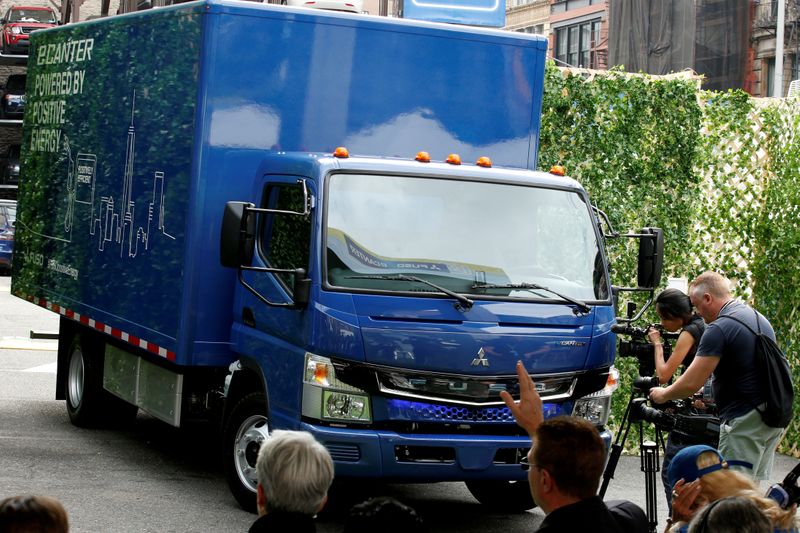By David Shepardson
WASHINGTON (Reuters) - A federal judge on Tuesday approved Daimler AG (DE:DAIGn)'s $1.5 billion settlement to resolve a U.S. government probe into the German automaker's use of undisclosed software that allowed excess diesel pollution to be emitted by 250,000 of its vehicles in the United States.
The settlement with the U.S. Justice Department and California Air Resources Board, which was announced in September, includes an $875 million civil penalty levied under the Clean Air Act, $70 million in additional penalties and $546 million to fix the polluting vehicles and offset excess emissions, court papers show.
U.S. District Judge Emmet G. Sullivan called the California settlement fair, reasonable and in the public interest, and noted settlement talks lasted for more than three years.
As part of the settlement, Daimler (OTC:DDAIF) will pay California $285.6 million.
The German company has separately agreed to a $700 million settlement with diesel vehicle owners. That settlement has won preliminary approval and is likely to get final approval this summer, said Steve Berman, a lawyer for the owners.
In December, the Justice Department said the settlement ensured Daimler would "repair around 250,000 vehicles at no cost to consumers" and fully address excess air pollution."
Diesel vehicles have come under scrutiny in the United States since Volkswagen AG (OTC:VWAGY) admitted in 2015 to installing secret software on 580,000 U.S. vehicles that allowed them to emit excess emissions.
In 2019, Daimler agreed to pay a 870 million-euro ($1.03 billion) fine in Germany for violating diesel emissions regulations.
Both Volkswagen (DE:VOWG_p) and Daimler halted sales of U.S. passenger diesel vehicles.
Fiat Chrysler, which is now part of Stellantis NV, reached an $800 million settlement in 2019 to resolve claims by regulators and owners that it used illegal software that produced false results on diesel-emissions tests.

Stellantis said last week in a securities filing that it remains in talks to resolve an ongoing U.S. Justice Department criminal probe, and previously set aside 200 million euros ($238 million) to address the issue.